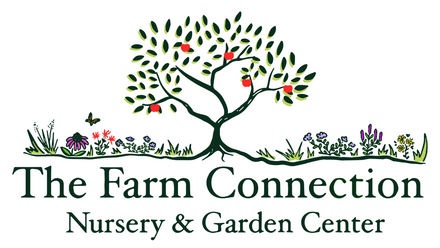Almond, Halls Hardy, Bare Root
Cold-Hardy Almond for Northern Growers
Almond, Halls Hardy, Bare Root - Bare Root / 11/16" caliper branched / Standard Rootstock is backordered and will ship as soon as it is back in stock.
Couldn't load pickup availability
Delivery and Shipping
Delivery and Shipping
Make sure to thoroughly review our entire "Shipping, Returns, Refunds, and Our Guarantee" page for all relevant details about ordering from our store.
Making a purchase from our store constitutes an agreement to all the conditions outlined in those policies.
We appreciate your support and look forward to being your favorite plant provider!
Almond ‘Hall’s Hardy’ (Prunus dulcis × Prunus persica)
‘Hall’s Hardy’ Almond is one of the most cold-hardy and adaptable almond cultivars available, making almond production possible in areas that are usually too cold for standard varieties. A hybrid between almond and peach, this vigorous, self-fertile tree produces sweet, soft-shelled nuts and beautiful pale pink flowers in early spring. Though technically grown more like a peach tree, Hall’s Hardy can be integrated into orchards, food forests, and permaculture systems as a dual-purpose tree—offering both high-nutrient nuts and pollinator habitat.
Key Characteristics
-
Cold-hardy almond with reliable production
Hall’s Hardy tolerates colder climates than most almond trees (down to USDA Zone 5), making it an excellent choice for growers outside traditional almond regions. It blooms slightly later than other almonds, helping avoid late frost damage to flowers. -
Edible nuts with high nutritional value
Produces soft-shell almonds that are sweet and edible raw or roasted. Almonds are rich in protein, healthy fats, vitamin E, magnesium, and fiber—making this tree a valuable addition to homestead food production. -
Attractive spring flowers for early pollinators
The pale pink blossoms appear in early spring and are highly attractive to honeybees and native bees. This early bloom helps extend the pollinator season in food forests and orchard understories. -
Self-fertile but benefits from cross-pollination
While Hall’s Hardy is self-fertile, planting another compatible almond or peach nearby can improve nut yield. Its peach parentage also makes it a suitable companion for stone fruit guilds. -
Useful in permaculture and orchard systems
With its high nut yield, nitrogen demand, and flowering benefits, Hall’s Hardy fits well into fruit tree guilds alongside dynamic accumulators like comfrey or pollinator support plants like yarrow and clover.
Product Details
- Sun requirements: Full sun
- Soil requirements: Medium; well-drained, loamy soil preferred
- Bloom time: Early spring
- Bloom color: Pale pink
- Fruit qualities: Soft-shelled, sweet almond
- Fruit uses: Fresh eating, roasting, baking, nut milk, oil
- Fruit ripening month: Late summer to early fall
- Required chill hours: 700–800 hours
- Pollination requirements: Self-fertile; better yields with another almond or peach nearby
- USDA Hardiness zones: 5–8
Hall’s Hardy brings almond production within reach for colder climates. With proper site planning and companion planting, it’s a high-performing nut tree for regenerative growers, homesteaders, and orchardists seeking diversity and resilience.
-
Sun RequirementsFull Sun
-
Soil RequirementsMedium, Medium-Dry, Medium-Wet
-
Bloom ColorPink
-
Bloom TimeMarch, April
-
USDA Hardiness ZonesZone 5, Zone 6, Zone 7, Zone 8
Payment & Security
Payment methods
Your payment information is processed securely. We do not store credit card details nor have access to your credit card information.




